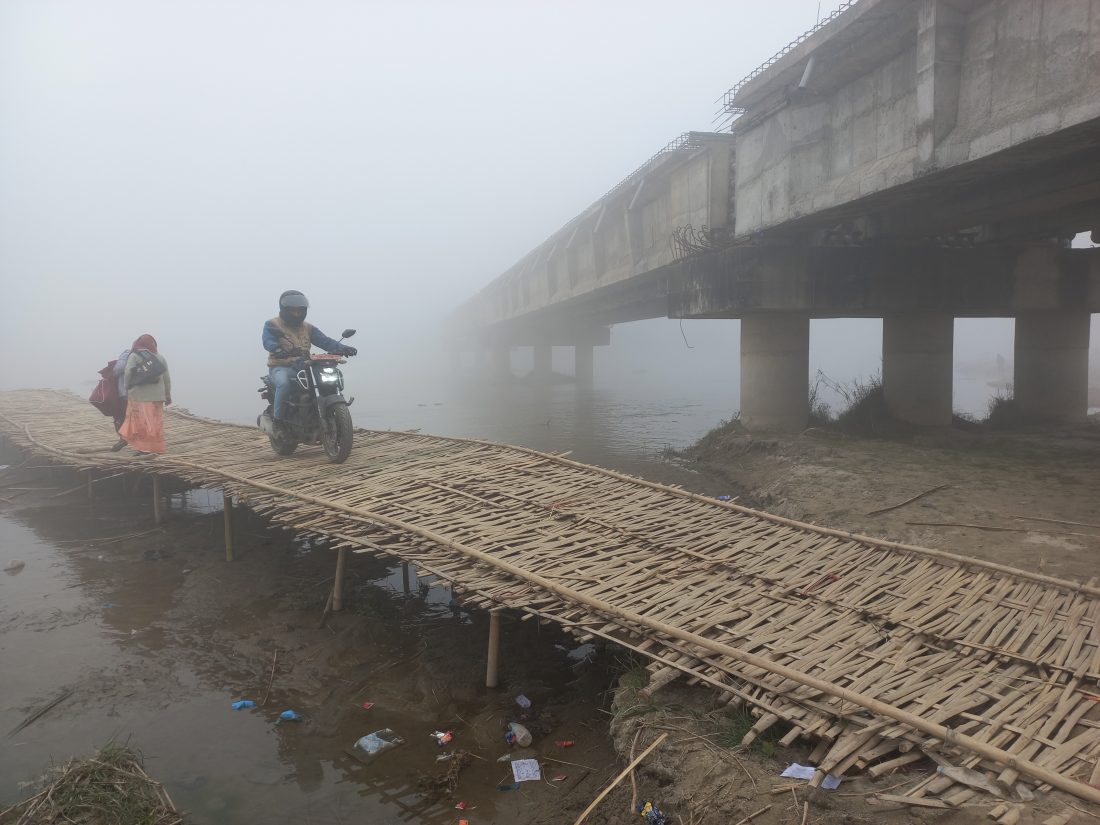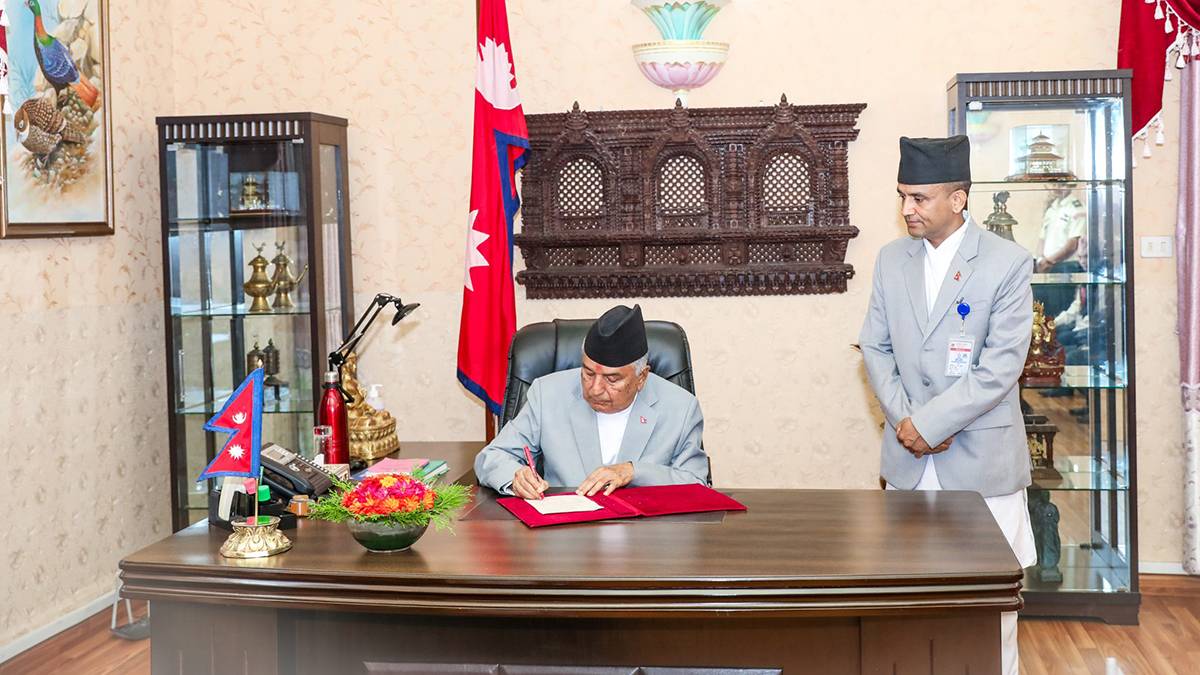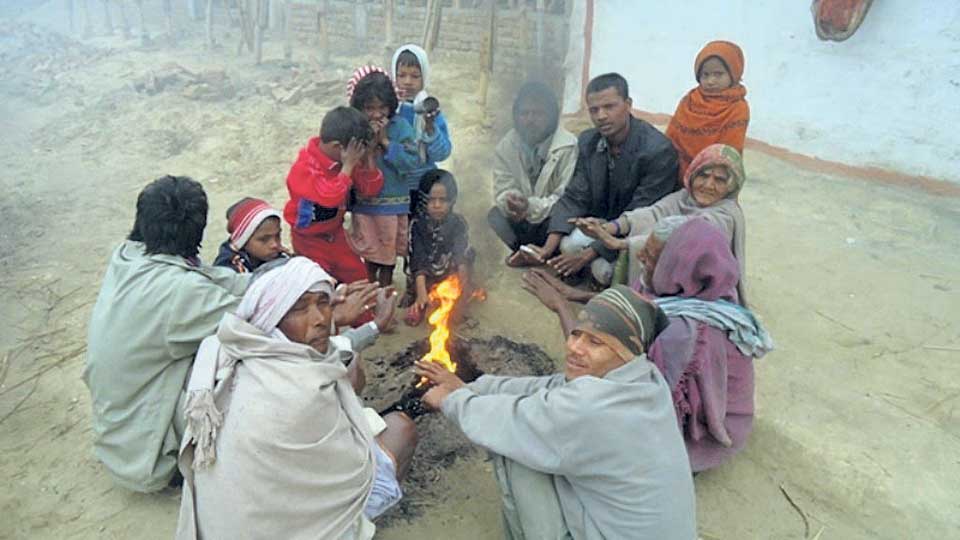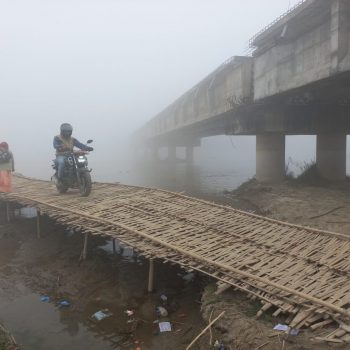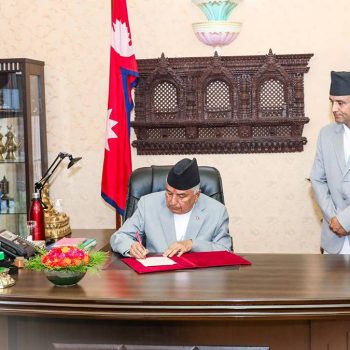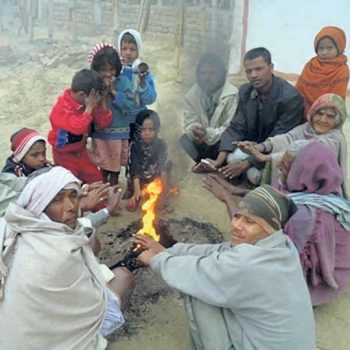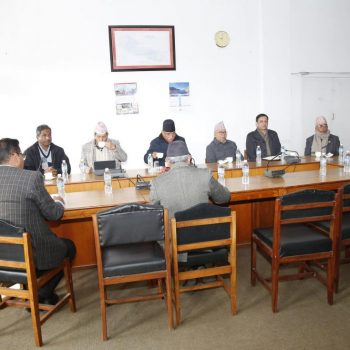PM Dahal underscores need of comprehensive approach to address complex challenges of climate change
 NepalPress
NepalPress
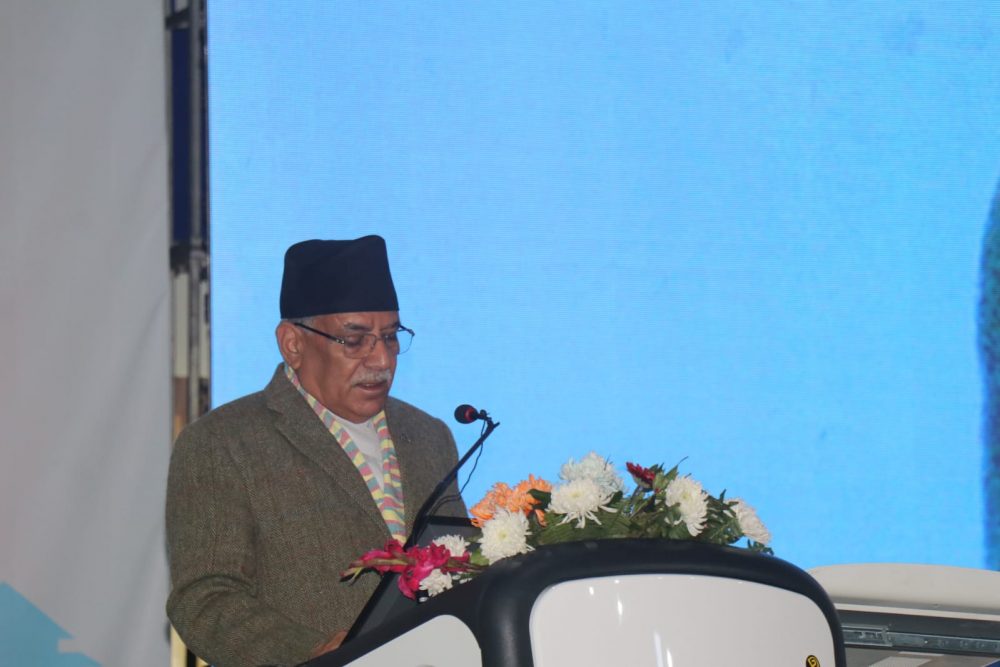
KATHMANDU: Prime Minister Pushpa Kamal Dahal has underlined the need of a comprehensive strategy to address complex challenges of climate change, health and social justice.
In his address to an inaugural session of the South and Southeast Asia Regional Conference on Connecting the Dots between Climate Change, Health, and Equity here today, the Prime Minister highlighted the need for a unified and comprehensive approach to addressing these pressing issues.
“While acknowledging the significance of this monumental event, the Government of Nepal sees it as a crucial step forward in our journey towards a future characterized by justice, sustainability, and fairness,” he said.
He further added that the challenges posed by climate change are immense, touching every corner of our planet, impacting our societies, health systems, and the natural environment.
“The trumpet call from climate scientists is clear and urgent: we must significantly reduce greenhouse gas emissions to avoid surpassing the critical threshold of 1.5° Celsius. This is especially vital for nations like ours, with our beautiful yet vulnerable mountainous landscapes and as a Least Developed Country (LDC), where the consequences of climate change are not just abstract statistics but harsh realities,” he said.
“The scientists have explicitly said that the emission of greenhouse gasses should be significantly reduced to maintain the temperature limit of 1.5 degree Celsius. Not only the harsh reality of climate change, but also its consequences are significant especially for least developed and mountainous countries like ours,” he said.
Noting that landslides, floods, wildfires, glacial lake outburst and drought are becoming more frequent and deadlier, PM Dahal said, “Such disasters have impacted the most vulnerable populations. The poor, women, children and indigenous nationalities have been impacted of all.”
The Prime Minister, referring to the latest reports, said that one-third of the global natural resources, including in the Himalayan range, have been lost and these loss and damage have not only put at risk the biodiversity but also the livelihood of billions of people living in the coastal areas.
Recalling that he has voiced in the international forums from the COP-28 held in Dubai to the 78th General Assembly of the United Nations on various challenges the least developed nations are facing due to climate change, he called on the developed economies to support the least developed and vulnerable countries by means of the urgently needed resources and technologies.


